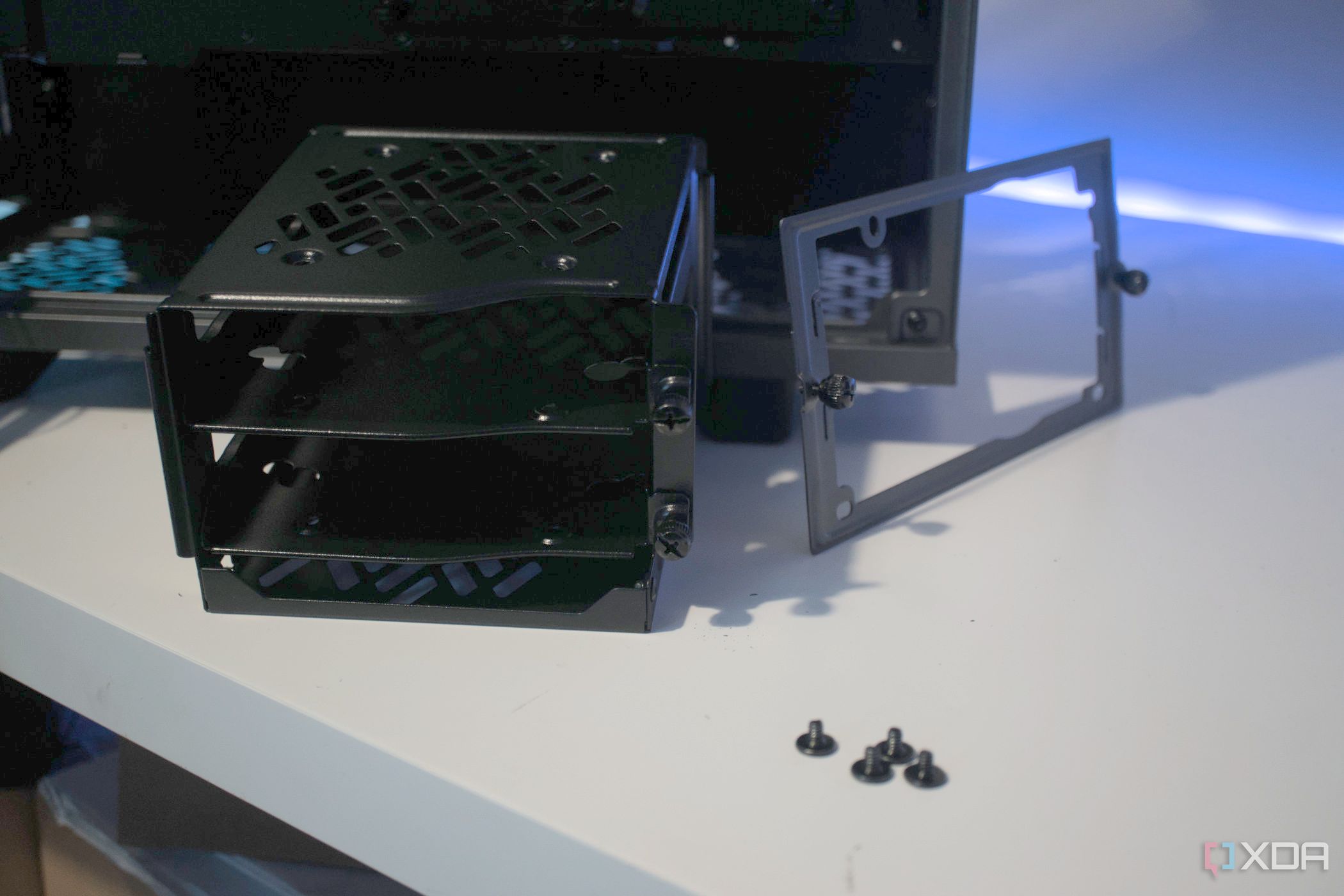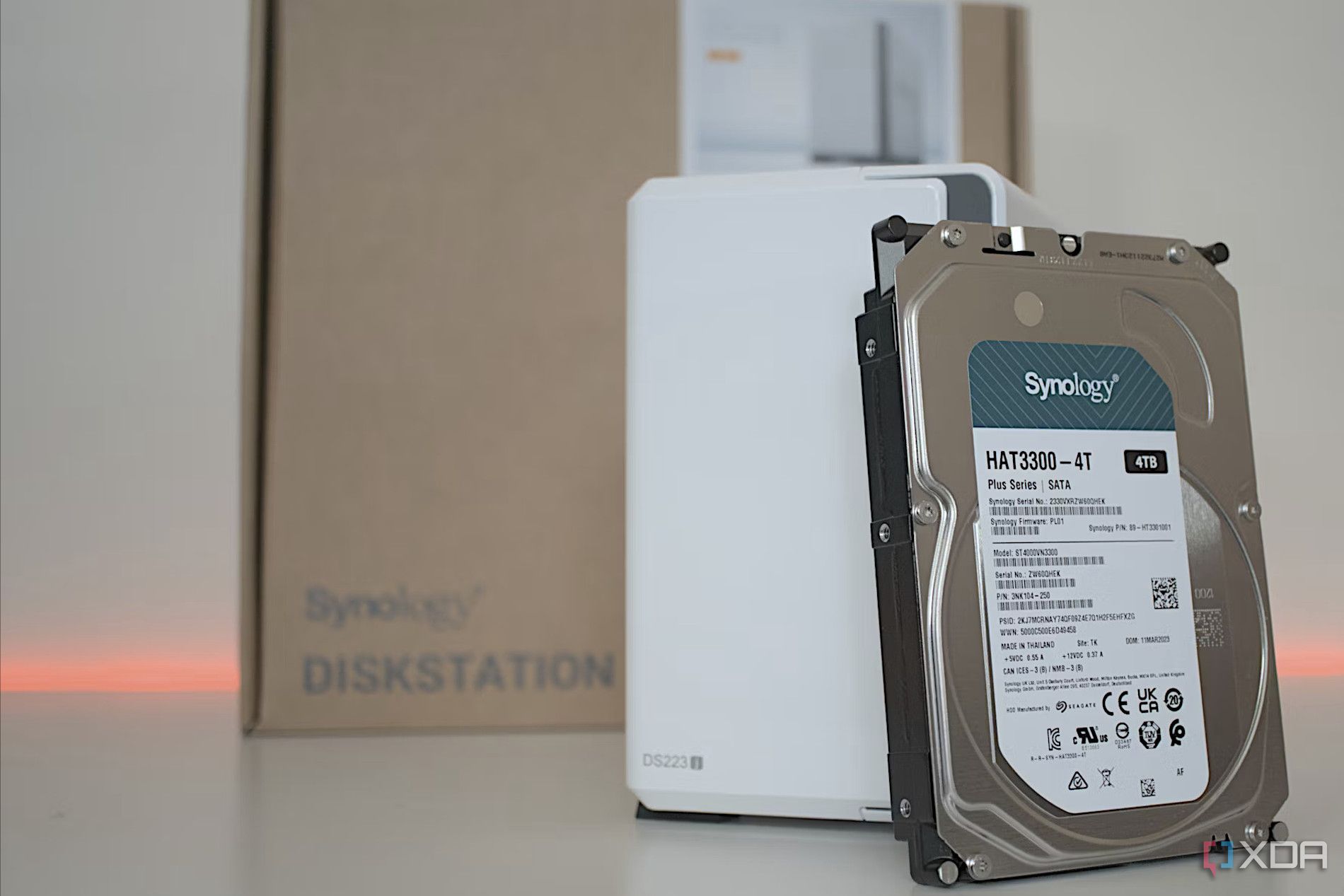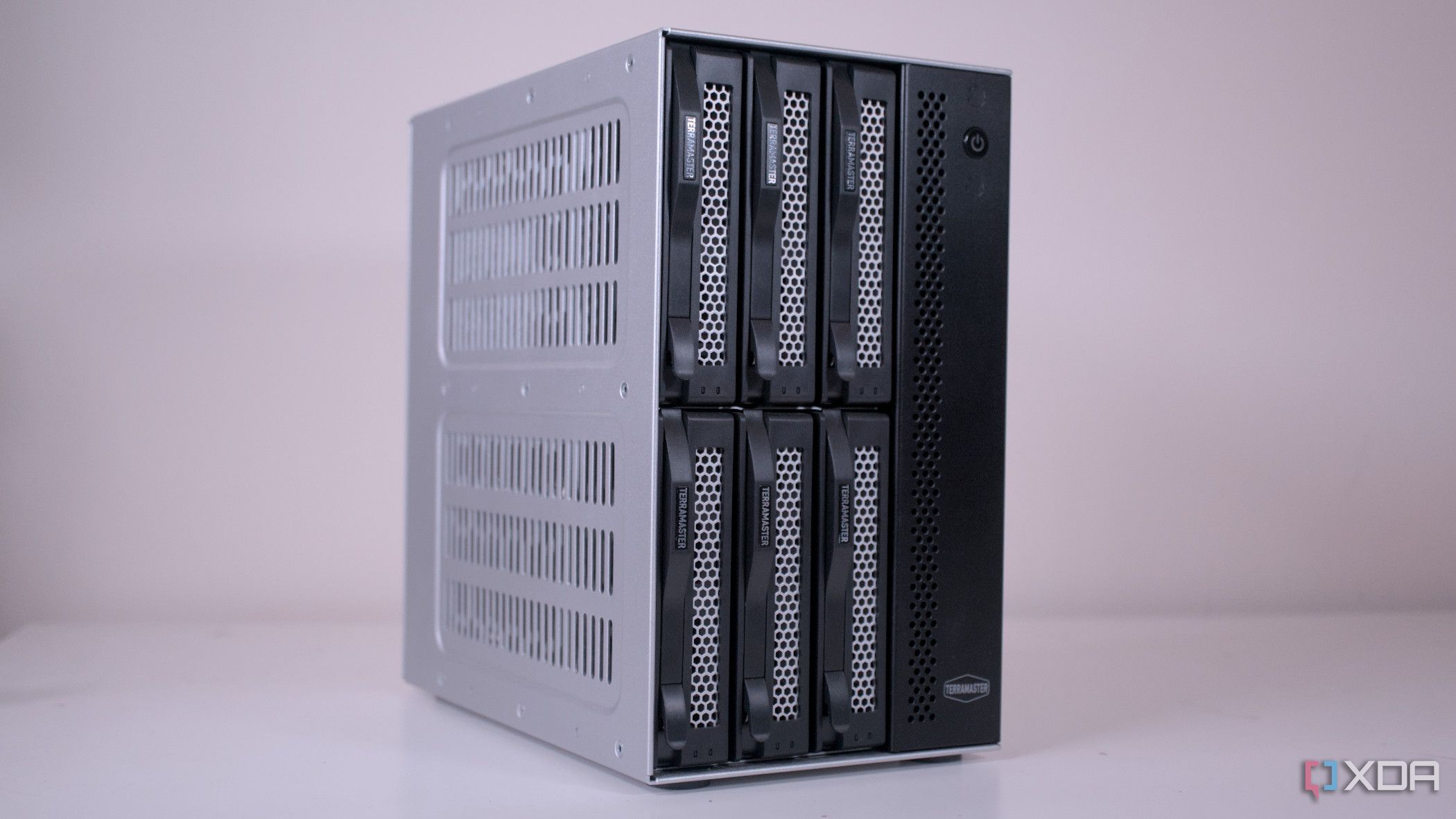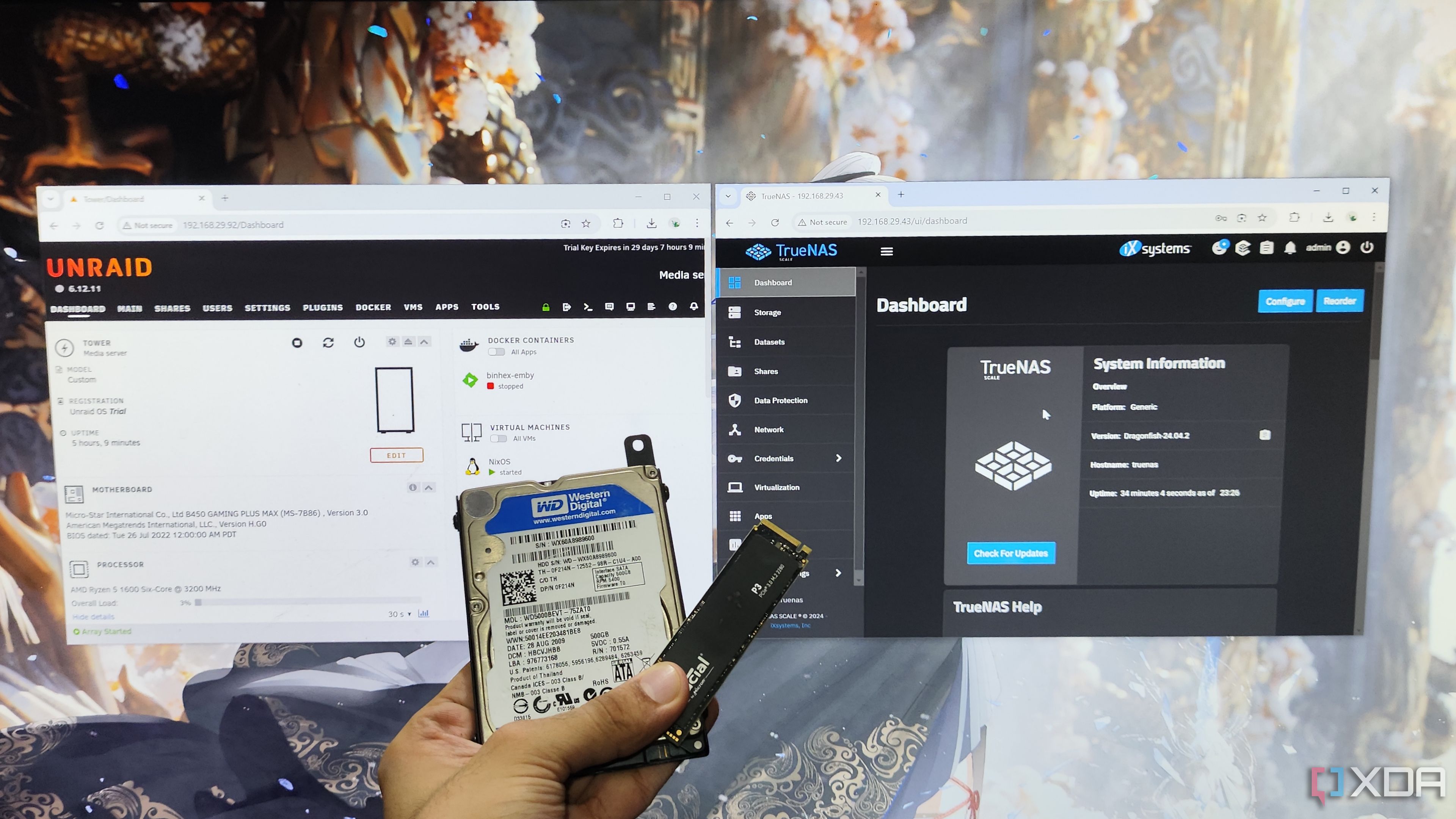Purchasing a turnkey network-attached storage (NAS) enclosure can prove challenging, much as it can with a desktop PC. There are various specifications available, not to mention brands and price points. Is a more expensive prebuilt NAS model guaranteed to outdo a cheaper alternative? What about the operating system? Does it matter when choosing a NAS? To help clear some things up, I’ll run through what you should look for when purchasing a prebuilt turnkey NAS from a brand such as Asustor or Synology.

Related
How to build your own DIY NAS
Save money and build a powerful home server.
Forget the OS (for the time being)
The OS is not as important as you think
One of the primary differentiators between turnkey NAS enclosures is the operating system. It’s what sets a Synology NAS apart from a TerraMaster NAS. Although the OS may differ, the general look, feel, and placement of features are usually fairly universal across the board. Performing one task on an Asustor NAS should allow you to achieve the same result on another branded enclosure without much trouble. This is by design to make it as easy as possible for people to migrate between brands, but it also means the OS is usually good enough for most users.
You’ll hopefully spend very little time interacting with the web admin graphical user interface (GUI) once everything has been configured. My favorite OS is Synology’s DiskStation Manager (DSM), though Asustor’s ADM and TerraMaster’s TOS are not far behind and sometimes the better choice, depending on what you need the NAS to do. Most, if not all, NAS operating systems will have Docker container support, which renders almost all first-party or integrated app store content problems moot. Even a basic, affordable, two-bay NAS from TerraMaster could run plenty of apps and services.
You’ll hopefully spend very little time interacting with the web admin GUI.
But that’s not to say you should pick up the most affordable NAS and call it a day, as it’ll likely have an Arm-based processor with considerably less power than AMD or Intel chips in other models. Then there’s system memory, which is often fixed at this lower price point, disallowing any future RAM upgrades. The OS will likely be supported on your specific NAS enclosure for numerous years before the product is classified as end-of-life (EOL) and moved to either limited security patching or no additional software support.

Related
4 of the best prebuilt NAS operating systems on turnkey systems
Which NAS OS should you buy a server for?
Specs are more important
Prices are determined by performance
Like any electronics device, the price is often an indicator of available performance and features, and the same goes for turnkey NAS enclosures. The processor handles all the instructions on the enclosure, be it transferring data to and from other networked hardware or running a service through a virtual machine (VM) or Docker. The more RAM, the more you can run on the NAS before the system starts to feel sluggish. Then you have M.2 SSD slots that can help give the NAS a boost through data caching.
Not all NAS enclosures are designed and built the same. The Synology DiskStation DS923+ and Asustor AS6704T are roughly the same in terms of specifications, but have slightly different prices ($9 MSRP difference in favor of the Synology NAS) and operating systems. In the Synology NAS, we have an AMD Ryzen R1600 CPU, whereas Asustor stuck with a tried and tested Intel Celeron N5105 chip. Up to 32GB of RAM can be installed inside the DS923+ and 16GB inside the AS6704T, both are more than enough for most NAS requirements.
-
Synology DiskStation DS923+ ASUSTOR Lockerstor 4 Gen2 (AS6704T) CPU AMD Ryzen R1600 Intel Celeron N5105 Memory 4 GB DDR4 4 GB DDR4 (max. 16 GB) Drive Bays 4 4 Expansion 2x M.2 PCIe NVMe, 1x PCIe 3.0 x2 4x M.2 2280, optional 10GbE Ports 2x 1 GbE, 2x USB-A 3.2 Gen 1, 1x eSATA 2x 2.5GbE, 2x USB 3.2 Gen 2×1, 1x HDMI 2.0b Caching Yes Yes OS DSM Asustor ADM Price $600 $609 Dimensions 166 x 199 x 223 mm 185.5 x 170 x 230 mm Weight 2.24 kg 2.94 kg
Asustor’s NAS has two additional M.2 SSD slots (for a total of four), has dual 2.5GbE network links, and supports an optional 10GbE network card. This is why it’s worth digging into the specifications of a turnkey NAS, as some will be tailored for specific scenarios and others will have better overall performance figures for general applications. Weight and dimensions should also play a part in the decision-making since you’ll need to ensure the enclosure will fit where you wish to install the NAS.
You can sometimes replace the OS
TrueNAS, Unraid, OMV
There are some NAS enclosures where you can install a different operating system from the one it came with. Many TerraMaster enclosures allow this, making it possible to enjoy all the hardware benefits that come with a turnkey solution but with all the choice and control of an aftermarket NAS OS. Running TrueNAS Scale, Unraid, OpenMediaVault (OMV), or some other solution is a great way to ensure you have many more years of software support once the hardware hits EOL — I did as much with the TerraMaster T6-423.

Related
How to create the ultimate home business NAS
Get up and running from home with a NAS to store all your business data.
Check the NAS you intend to purchase to see if it has a USB drive for the OS. If so, this can usually be removed for you to install a new OS on was different USB drive, allowing you to return to the factory-provided option should issues arise. Doing so can provide many benefits, including the ability to continue updating the OS even after your specific NAS model has been relegated to the dustbin of history and a successor already in the market. It may not even void your warranty, which can prove invaluable — though you must always check this first!
Just remember that you’ll need an HDMI port to provide access to the BIOS and use a keyboard to change a few settings when attempting to boot up the NAS with a new OS. TrueNAS, Unraid, and OMV are three popular NAS OS options and some of the only few we’d recommend installing on turnkey hardware. A community-built Synology DSM clone called Xpenology is also available. Bear in mind, these operating systems will have requirements of their own, so again, you must consider the hardware of your NAS to ensure the CPU and RAM are enough.

Related
Unraid vs TrueNAS Scale: Which NAS OS is the best?
How does the premium NAS operating system fare against the uber-popular storage server OS?











